I’ve shared a few of James Richard’s sketches on the Wanderarti Facebook page and Twitter in the past, so I was extremely excited when James said he’d be happy to do an interview for the site. James is a Texas based urban designer and architecture professor, so his sketches place heavy emphasis on busy cities and elaborate buildings. Enjoy!
Your sketches have a very unique, fun style to them. How did this develop?
My visual sense is undoubtedly shaped by the magazines and comics I read as a kid. I’d try to emulate the drawing styles of Mort Drucker, Ronald Searle, Paul Hogarth and others, so there’s some of that there. Also, the demands of my professional work as an urban designer has trained me over time to draw very quickly, so the speed of the strokes and the natural “left-handed lean” that results from my working fast probably translates into a more loose, fun style.
La Sagrada Familia, Barcelona
What inspires your work?
I travel a lot (43 countries so far); I’m inspired by the architecture, lively plazas and the buzz of positive energy I feel when I’m walking in great cities. Best of all is the people watching; as a designer I’m always watching the kinds of activity and human drama that unfolds in streets, parks and plazas. I see it, I want to draw it, and I want to do it in a way that others can share a part of that experience.
Paraty, Brazil
Let’s talk about process. What steps do you take when creating each piece?
I sketch on-location. I learned from urban sketcher Veronica Lawlor to walk all over, around and through a place, making a series of very small, quick thumbnail sketches. This was invaluable advice. When one of the thumbnails reveals a story to tell with a strong composition, that’s the subject.
I usually start with a horizon line, and a line frame. Then, I’ll actually draw some people first—some close, some further, walking, chatting, etc.—to ease my way into the sketch and to immediately add some life and depth to the scene. Then, the architecture is blocked out—big shapes first, then details, then darker values. I’ll add more people, cars, signs, street furnishings and other details to try to recreate the feel of the place. Then I’ll decide where to use color to underscore the focus of the sketch, or to try to capture a mood.
What do you hope each piece tells the viewer about the place it depicts?
Every place I visit has its own unique setting, architecture, history and culture. Great cities and places reflect that uniqueness, and the pride, aspirations and talents of the people who live there. I feel a sense of exuberance when exploring new places, and want others to sense that exuberance, too. In this sense, I think on-the-spot sketches, like travel, can open a window to open-mindedness and understanding of other places and cultures. I’d love for the drawings to inspire the people who view them to visit these places themselves.
The Palais Garnier, Paris
You seem to sketch quite a lot of busy, bustling cities. Is there a connection between style and subject?
Yes, I think so. I’m not trying to accurately recreate a view as much as I am trying to capture the energy I feel in the place. I try to express that in a strong overall shape for the composition, quick, variable lines, strong value contrast, and the focused use of vibrant color. I’m never quite satisfied with my interpretation at first, but when I revisit the sketch later, my experience of that place comes back to me.
Washington DC
Where or what has been your favourite place or subject to sketch and why?
The places I love best have a strong sense of history, authenticity, variety and a lively street life. The sites of our last three International Urban Sketching Symposiums—Lisbon, Santo Domingo and Barcelona—really stand out in my mind. You can walk everywhere, and there’s amazing subject matter everywhere you turn. And they are full of people who really love their city. That’s inspiring. Having lots of other sketchers there also enhanced the experience of those places, I’m sure.
Bosphorus waterfront, Istanbul
If you could sketch anywhere or anything in the world, where or what would it be and why?
I want to sketch the places I haven’t been. Cuba was at the top of my “bucket list” until this summer, when I got to travel and sketch there for a week. I’d still like very much to sketch in India. Hong Kong is high on my list. And I want to get to Africa, though it would be a different kind of environment and sketching challenge.
Rajburi, Thailand
Finally, do you have any tips or advice for readers who might be interested in sketching the places they visit?
Yes. Try to sketch whenever you can, of course. But here’s the thing: Try to find a group to sketch with. Sketching with a group versus alone is like the difference between plunking away at a guitar on your bed and joining a garage band—everyone rises by being part of the group. You learn from each other, you support each other, you inspire each other. You should take any opportunity to sketch that you can, obviously, but being part of a group accelerates the learning process, and adds to the fun, as well.
You can see more of James’ work on his blog.
I’m a big fan of James’ quick sketchy style that captures the busyness of places. What do you like most about it?
Finally… Musement, a site offering museum tickets, art tours, and cultural activities has kindly let Wanderarti readers get €5 off purchases up until the 31st July. Just use the code WANDERARTI and you can get discounted offers all over Europe!

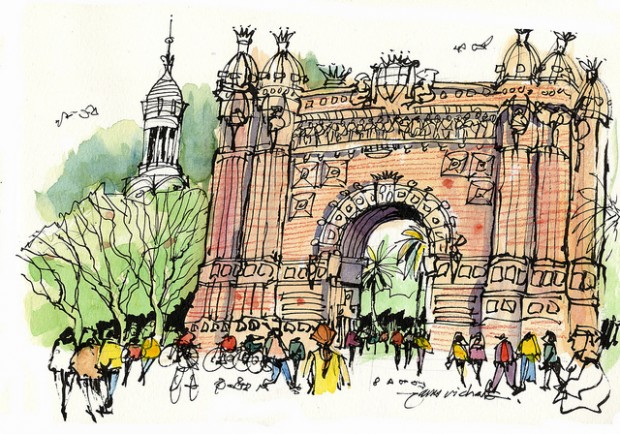
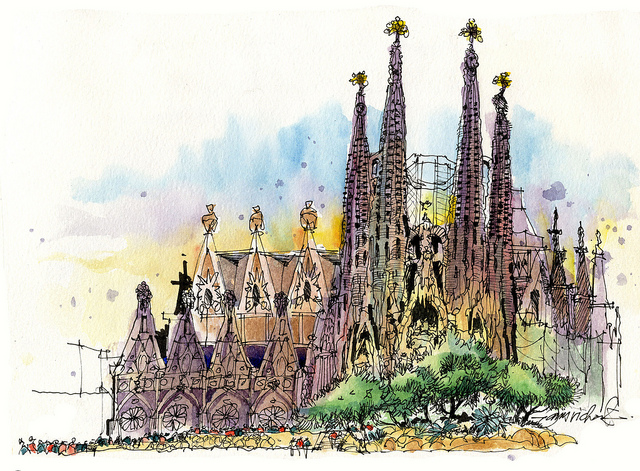
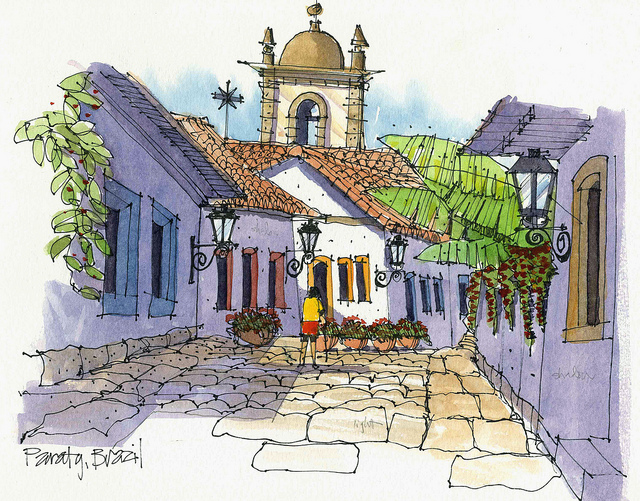
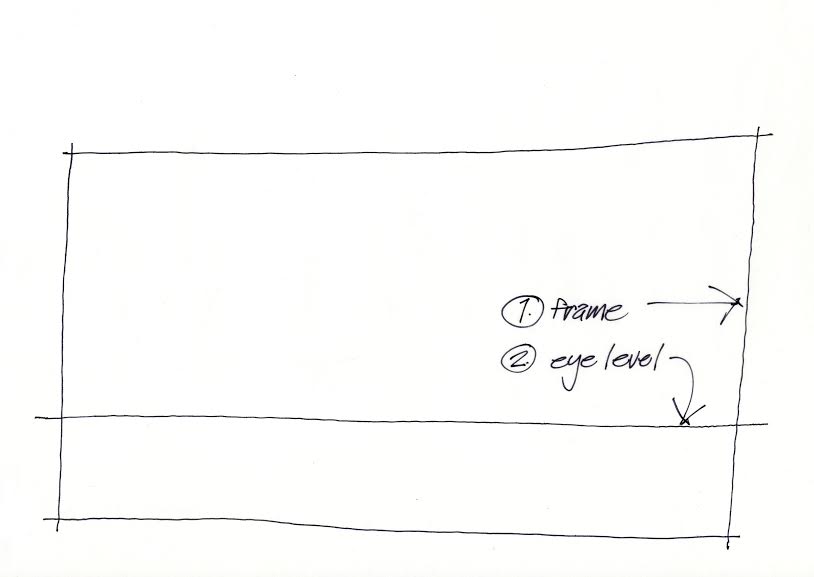
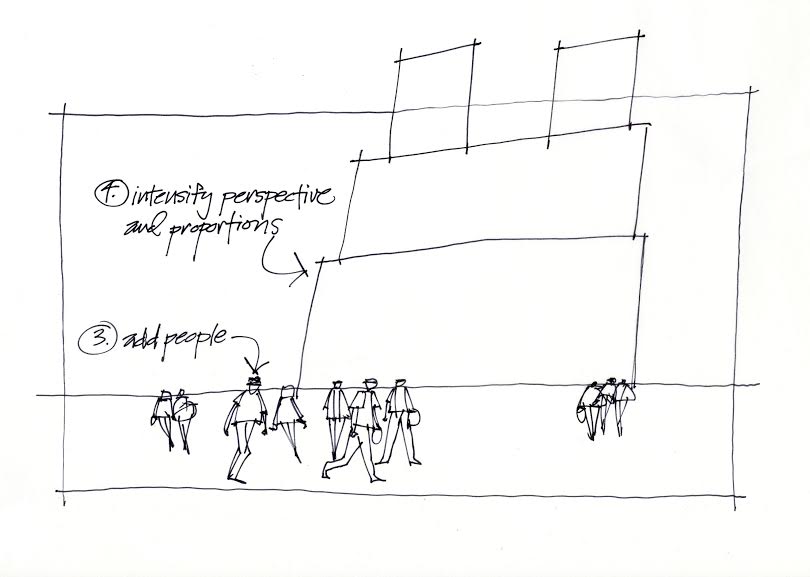
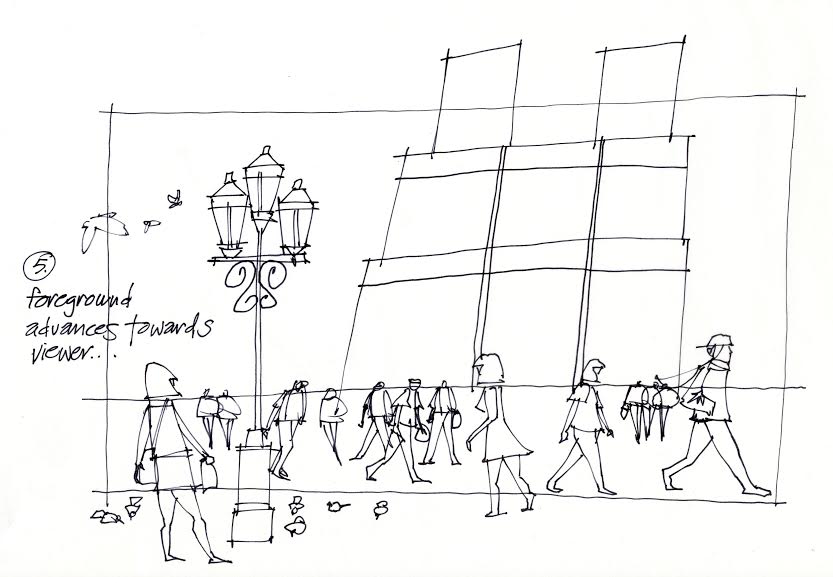
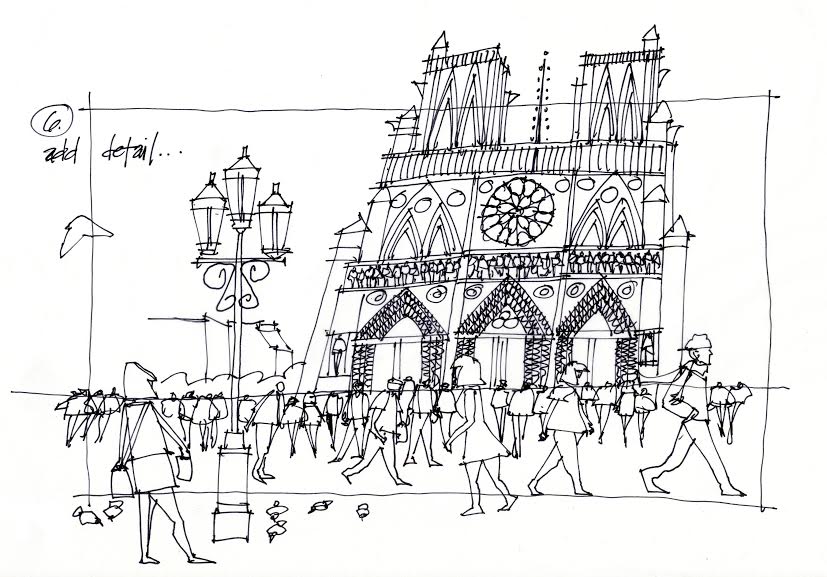
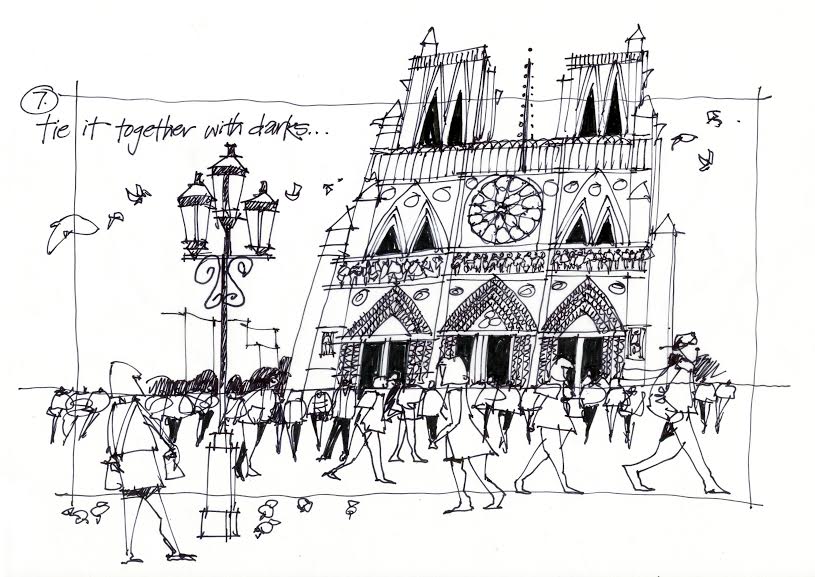
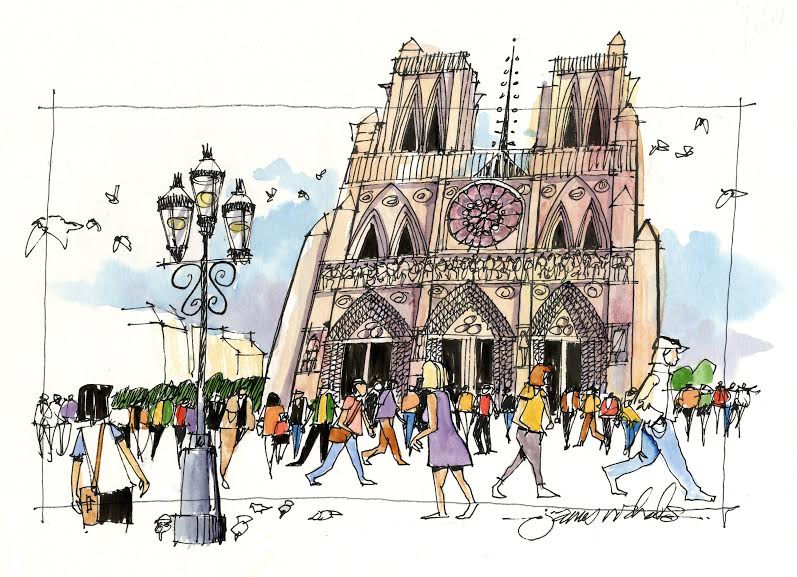
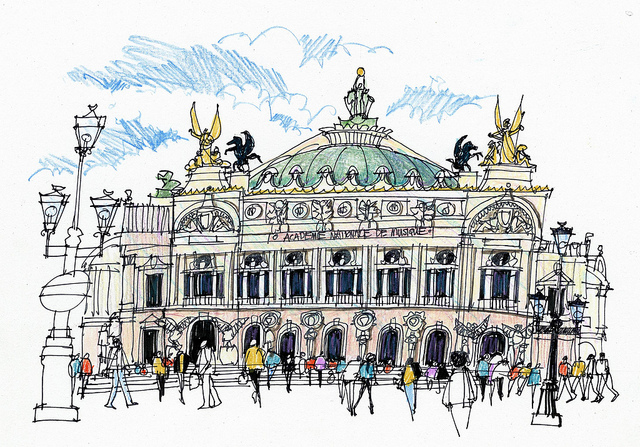

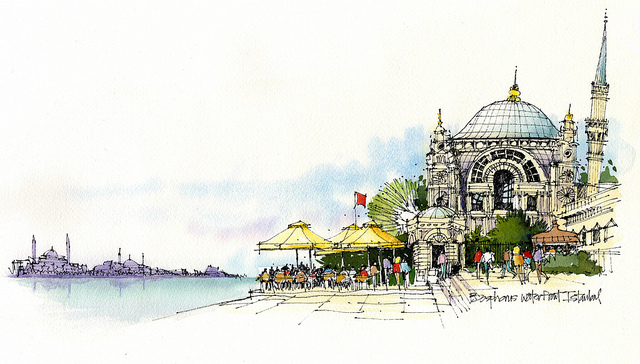
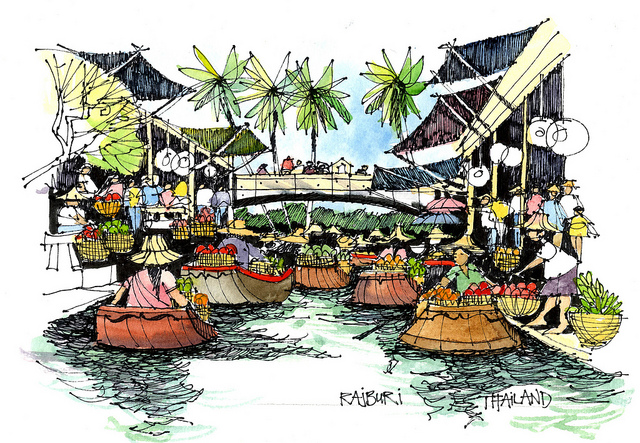


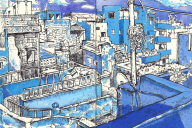
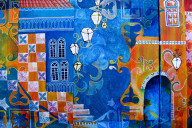
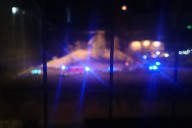





I enjoyed Jim’s sessions at the National ASLA Conference and his wonderful book Freehand Sketching and Discovery. His style is looser than final presentation graphics but conveys the human energy of “places” that attract people and encourage interaction. I hope that Mr. Richards decides to write more books on sketching and urban design, we all need to see the good side of humanity for a change, Jim shows us that. Thanks Jim.